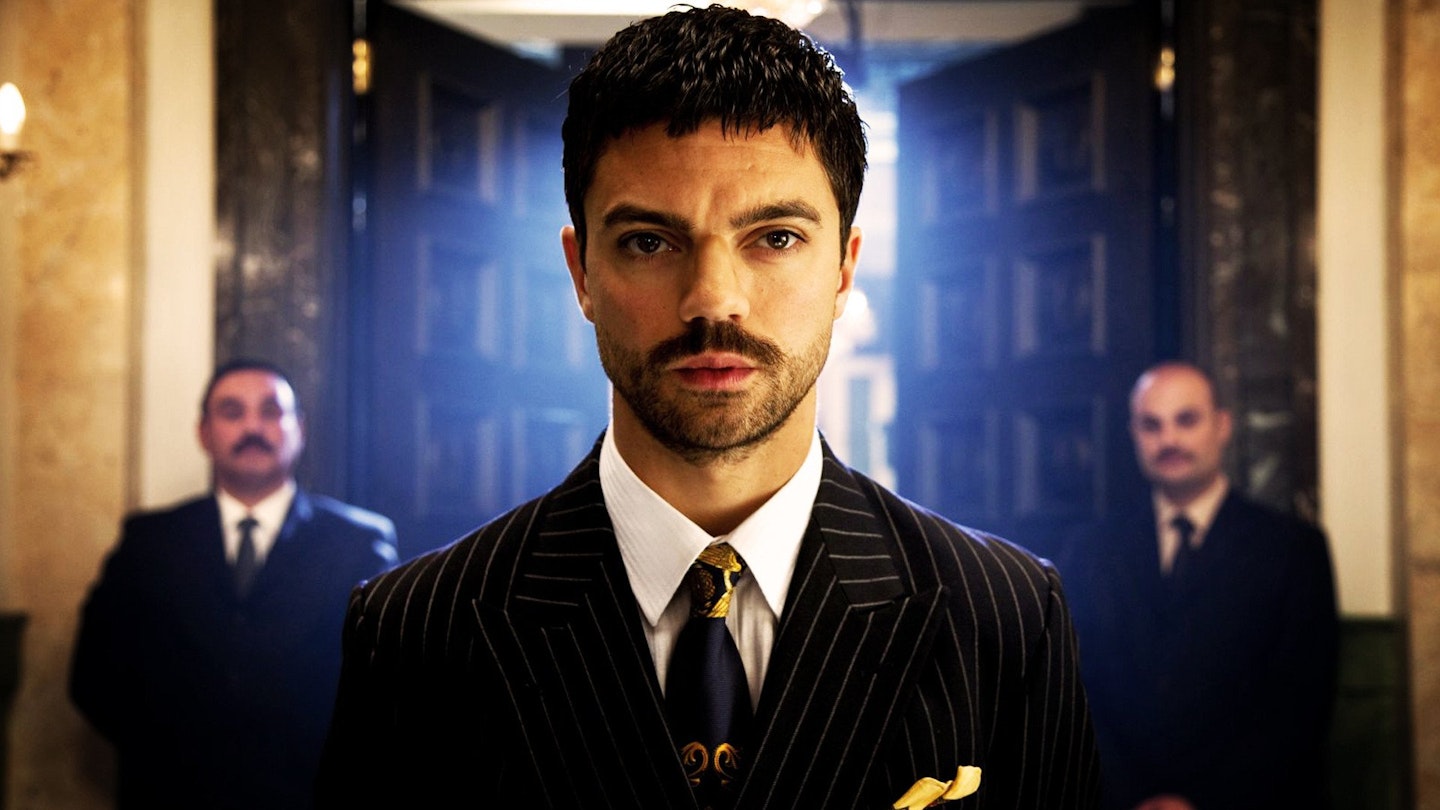Where other filmmakers have tip-toed pensively through the minefield of Iraq, Lee Tamahori jumps into his monster truck, puts on his blindfold and bulldozes right through it. Refusing point-blank to engage in any kind of political debate and relaying no message other than ‘dictators are bad’, The Devil’s Double reconfigures the House Of Hussein as a bad-taste, bad-ass, pimped-up gangster epic. And not only that; it gets away with it, too.
Set during the build-up to the 1990 Gulf War, the film offers full, lurid access to the court of Saddam Hussein’s son, Uday, through the eyes of his horrified body-double, Latif Yahia (both played by Dominic Cooper). Yahia’s autobiography has the hysterical pitch of a National Enquirer exposé (which is hardly surprising, given he survived a total of 11 assassination attempts); Tamahori seems happy to follow suit and sets the tone early on. After enduring facelifts, dental surgery and vocal training, Latif presents himself to Uday, who gives him the once-over… and immediately demands a penis reduction. “My cock is well-known in Baghdad,” shrugs Uday. “Women will talk.” You don’t know whether to laugh or scream.
With no police or gangs offering Uday resistance, Tamahori’s free to indulge in a blaring depiction of unchallenged debauchery — the coke, the rapes, the shootings, the drillings, all played out in an endless succession of gruesomely tacky nightclubs. For better or worse, it’s like watching an extended remix of the Scarface disco scene — chilling, exhilarating, gaudy and exhausting.
The casting, however, is super-fresh. For Cooper, it’s a case of two breakout roles arriving at once. In the toothsome Uday he’s brewed up a flamboyant monster: part Caligula, part Tony Montana, part Freddie Mercury. It’s straight from the Joe Pesci school of combustible psychopaths, and it’s his appalling volatility that keeps the film teetering on the edge. His opposite, Latif, is exactly that: a dialled-down, brooding loner with a strong, silent moral core. It’s simple but it works: you root for him all the way, even when he gets lumbered with a rucksack of a romance with Ludivine Sagnier’s wide-eyed courtesan. Tamahori’s intention, you guess, was to provide some form of human relief to the relentless rape and drillage, but it’s pure, Wilbur Smith-style pulp. “That night, we rode like the wind,” Cooper sighs as the two flee on horseback towards a gooey cocktail sunset. Excess wind, by any chance?

